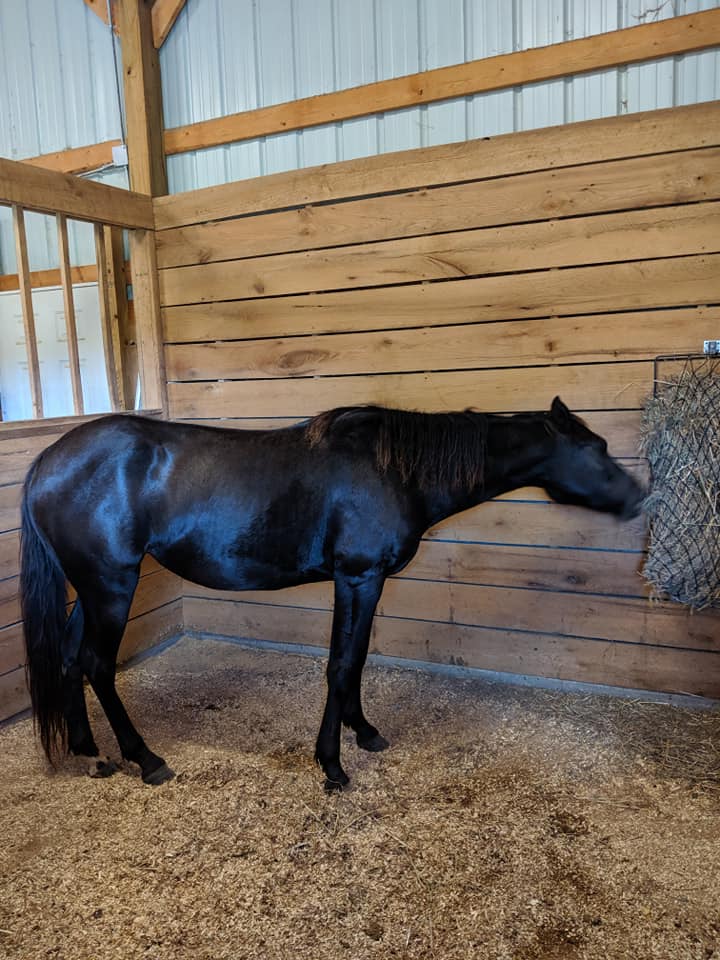

Did you know . . .
that colic in stabled horses occurs more frequently during the colder months? Although a horse can colic at any time of the year, the odds are higher as the weather grows colder.
For many horses, winter weather means that the horse has less time outside and is ridden less often. A decrease in exercise can cause the intestinal tract to be slower which increases the chance for colic. Less exercise also means a drop in your horse’s drinking. A decrease in hydration means an increase in the risk of an intestinal blockage.
During cooler weather make sure that your horse is drinking plenty of water. Use a tank heater to prevent freezing and to provide warm water which is often more appealing to horses in colder weather.
If your horse is stabled, make sure she is getting plenty of exercise through riding, pasture turnout, or groundwork. Aim for a daily workout session if possible.
While colic isn’t always preventable and can be unpredictable, these steps can help reduce the risk of your stabled horse developing colic during the colder months.
Last Updated: October 24, 2019 by Connie Morris
Colic, Colder Weather, and Stabled Horses
Did you know . . .
that colic in stabled horses occurs more frequently during the colder months? Although a horse can colic at any time of the year, the odds are higher as the weather grows colder.
For many horses, winter weather means that the horse has less time outside and is ridden less often. A decrease in exercise can cause the intestinal tract to be slower which increases the chance for colic. Less exercise also means a drop in your horse’s drinking. A decrease in hydration means an increase in the risk of an intestinal blockage.
During cooler weather make sure that your horse is drinking plenty of water. Use a tank heater to prevent freezing and to provide warm water which is often more appealing to horses in colder weather.
If your horse is stabled, make sure she is getting plenty of exercise through riding, pasture turnout, or groundwork. Aim for a daily workout session if possible.
While colic isn’t always preventable and can be unpredictable, these steps can help reduce the risk of your stabled horse developing colic during the colder months.
Category: Misc
PayPal Giving Fund
Network For Good
Silent Donor
Support Us Anonymously! Silent Donor is the largest anonymous donation platform in the world, allowing all donors to send fully anonymous, tax-deductible donations to the causes they want to support. Click the link below to access their private platform – simply write in Faith N Friends as the organization to receive your anonymous donation on their form. Choose to donate via card, bank transfer, stock, or cryptocurrency. Keep the impact of your gift, and also keep your privacy. Send your anonymous donation to support our mission today! Donate Now – Silent Donor
Doris Day Animal Foundation
Follow Us on Social Media